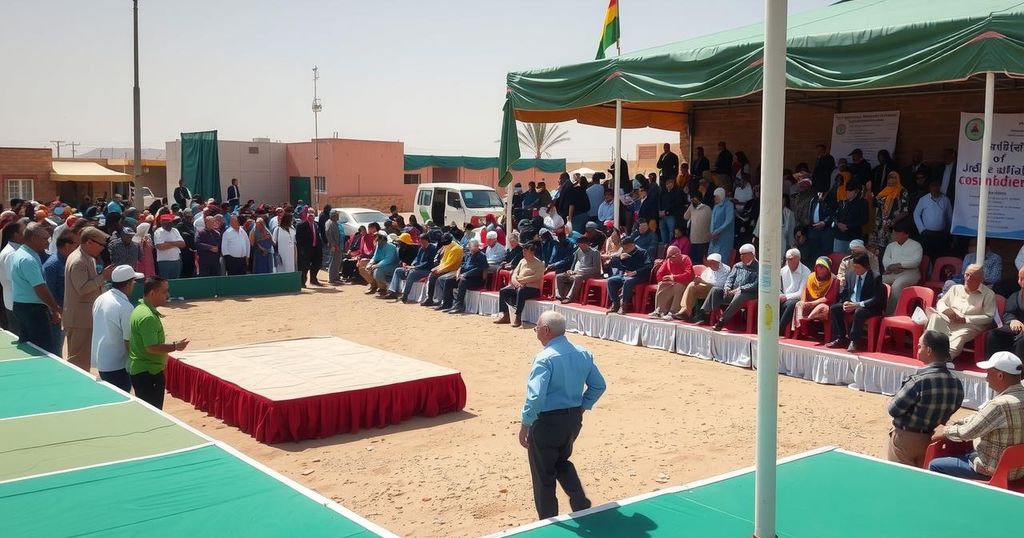Chadians voted in parliamentary elections on Sunday with low turnout amid opposition boycotts. The elections are the first under military rule and follow a disputed presidential vote. The junta leader, Mahamat Idriss Deby, aims to initiate a new democratic era, but many opposition groups allege electoral misconduct and illegitimacy.
Chadians participated in parliamentary and regional elections on Sunday, resulting in notably low voter turnout as the main opposition party opted to boycott the poll, alleging a lack of credible electoral oversight. This election marks the first parliamentary election in over a decade, following a contentious presidential vote led by junta leader Mahamat Idriss Deby. Deby, who assumed power in 2021 after his father’s death, stated that this election would initiate much-anticipated decentralization in the country. Despite the registration of over 8 million voters for the election of 188 legislators, polling stations in the capital, N’Djamena, exhibited minimal activity. Opposition groups view the elections as a mere façade designed to secure Deby’s continued hold on power, further complicating Chad’s path towards democracy.
Chad has been under military rule since the transition initiated in 2021, following the death of long-serving President Idriss Deby Itno. The junta promised a return to democracy, yet recent elections have drawn significant skepticism, particularly from opposition groups that have accused the government of manipulating the electoral process. Chad’s history of unstable governance and lack of free elections, compounded by security challenges, underscores the importance of this parliamentary election as it represents a potential shift towards a more democratic society or the prolongation of military dominance.
In summary, the recent parliamentary elections in Chad have been marred by low voter turnout, primarily due to a boycott by the opposition, who criticized the electoral process as illegitimate. While this election was intended to signify a move towards decentralization and democracy following years of military governance, challenges remain regarding the credibility and future governance in Chad. Observers express concern that without genuine opposition participation, the transition could falter, leaving the country still in a precarious position regarding its political future.
Original Source: apnews.com






